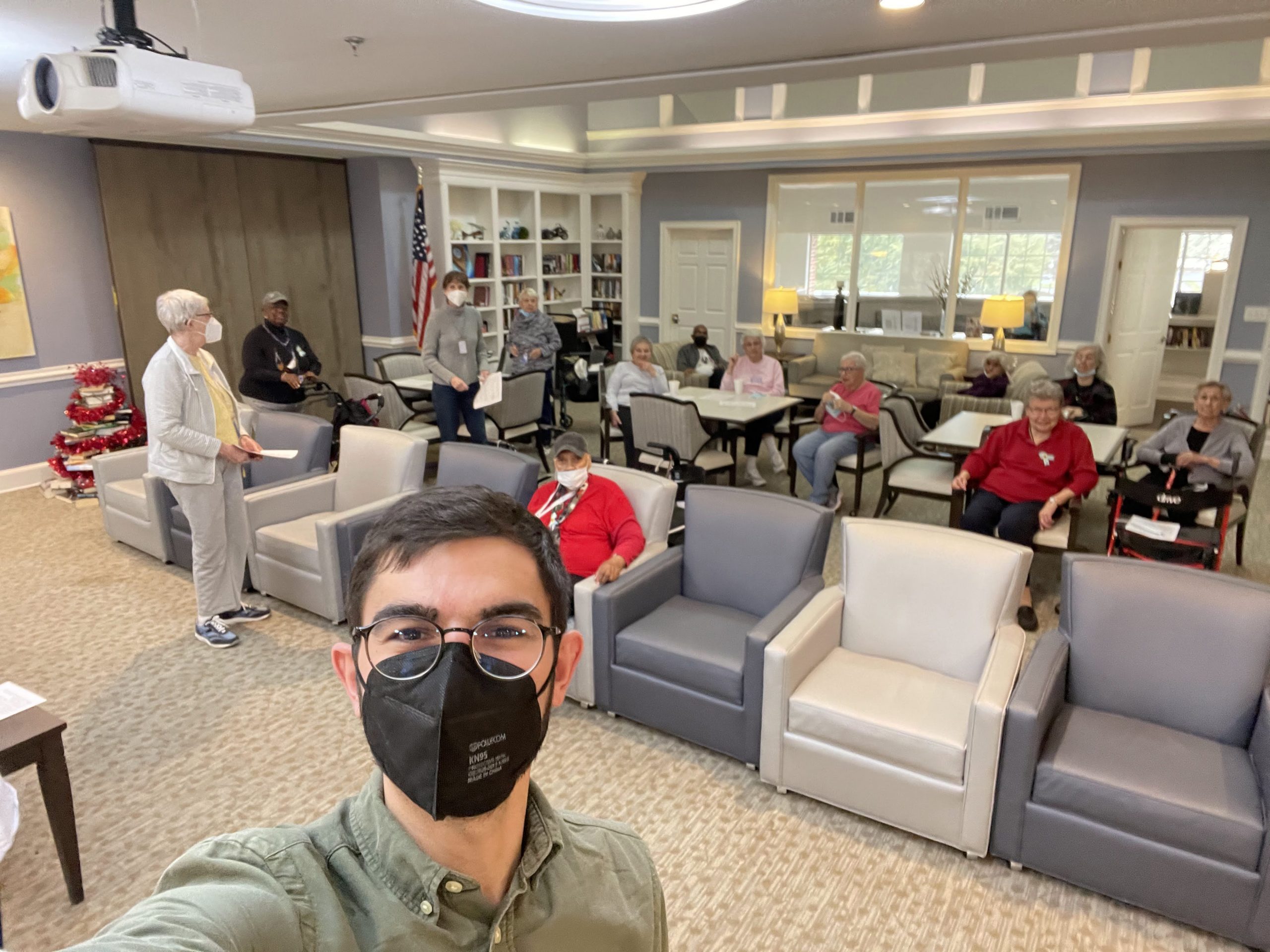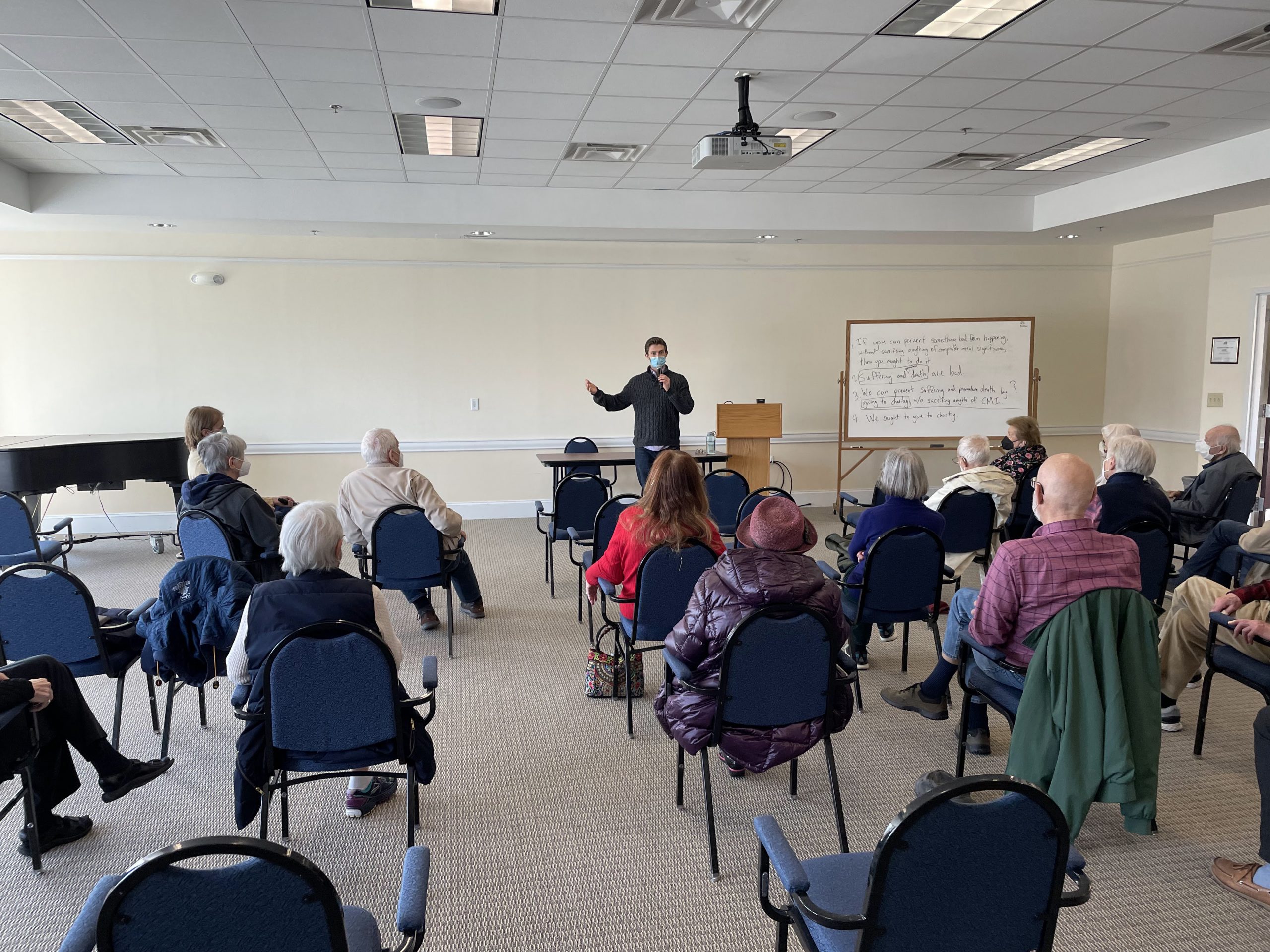
Philosopher Juliana Bidadanure recently addressed the Carolina community in Caldwell Hall and underscored the imperative that we as a society “establish communities where young and old are able to stand, and relate to one another, as equals.”* Her call resonated with Carolina Philosophy. The department has made a mission of creating intergenerational spaces for young and old to discuss some of life’s most pressing questions, together as equals.
‘Seeking wisdom across the ages’ is the vision behind our course “Philosophy Across the Lifespan,” in which UNC undergraduates engage in philosophical dialogue with older adults from across the community, including regular class sessions and “intergenerational peer review” on philosophical op-eds written by UNC students. Thanks to the kindness and leadership of Orange County Department on Aging Director Janice Tyler and Senior Centers Administrator Myra Austin, the philosophy department has created a truly public space for intergenerational dialogue at Chapel Hill’s state-of-the-art Robert and Pearl Seymour Center. The course was developed in Spring 2020 in response to the unique challenges posed by the COVID-19 pandemic, and it continues as a fixture of the department’s experiential education coursework. One of the pillars of the program is UNC’s own Retired Faculty Association, whose members have taught and learned philosophy alongside younger Tar Heels since the program began.

The philosophy department also has longstanding partnerships with retirement communities across the Triangle area. Our partners this academic year include Galloway Ridge at Fearrington, Carol Woods Retirement Community, Carolina Meadows Retirement Community, and Bartlett Reserve Independent Living Community. The structure and content of our programs is driven by participants. In some cases that involves discussion groups on different ethical and political dilemmas, in others a curated lecture series by PhD students in philosophy at UNC, and in others still, traditional reading groups about a specific topic like ancient philosophy.
We believe philosophy is for everyone. Thinking philosophically is part of being human. Our hope is that we can provide the resources and the space for folks of all ages to deepen their engagement with these questions. And in a world increasingly spatially and socially segregated by age, it is more important than ever to do so in an intergenerational way. That’s why our undergraduates, graduate students, and faculty have committed countless hours to promoting intergenerational philosophy.
To mark the end of another year of successful intergenerational community partnerships, we would like to extend an open invitation to the public to attend the final meeting of our Intergenerational Philosophy class on May 5 at 12 p.m. There will be opportunity for intergenerational listening and dialogue on ethics and philosophy. If you would like more details, or if you wish to RSVP, email Outreach Director Michael Vazquez (michael.vazquez@unc.edu).
The Philosophy Outreach Program works with K-12 schools, libraries, museums, retirement communities, prisons, professional organizations and more to promote lifelong philosophical and ethical reflection. To learn more about the Program’s efforts, click here.
* The quotation is from Juliana Bidadanure’s book, Justice Across Ages: Treating Young and Old as Equals (p.8).
By Michael Vazquez, teaching assistant professor and director of outreach for the department of philosophy and the Parr Center for Ethics
